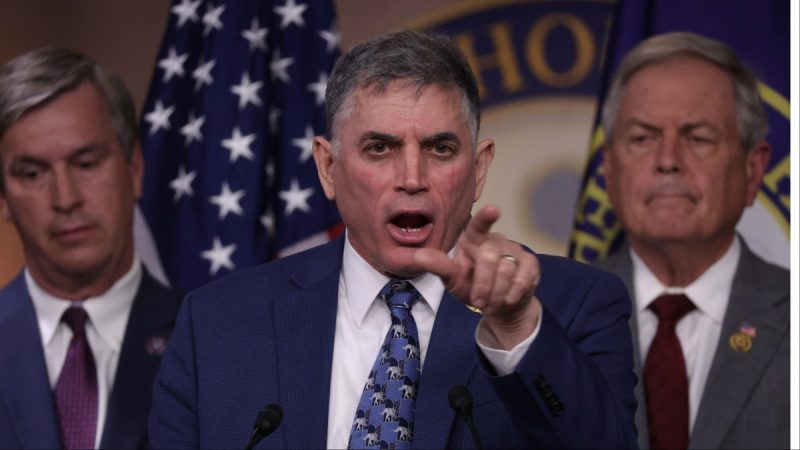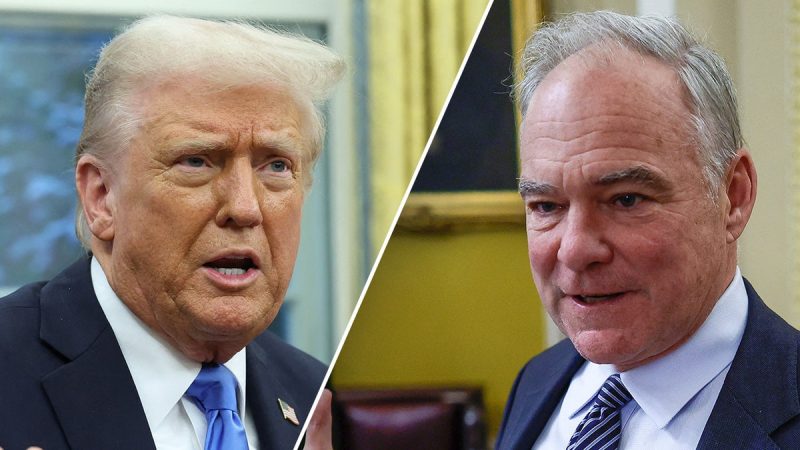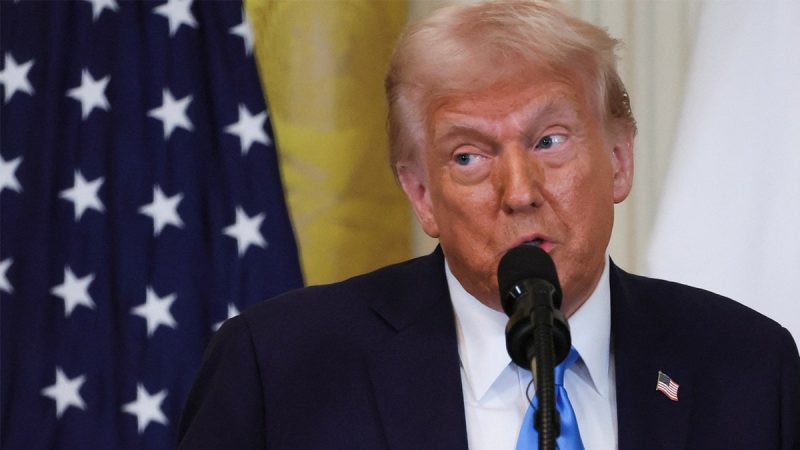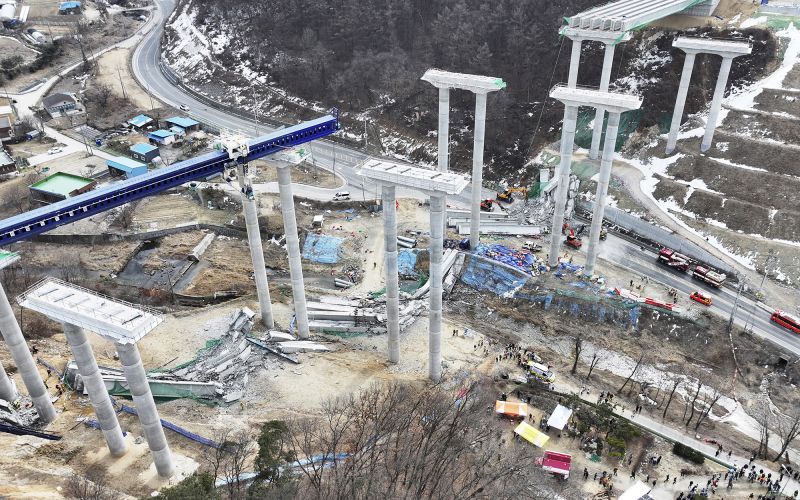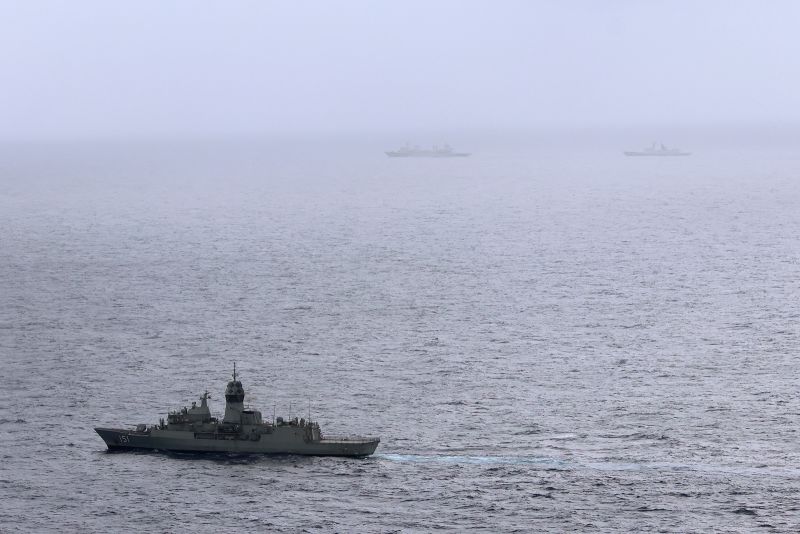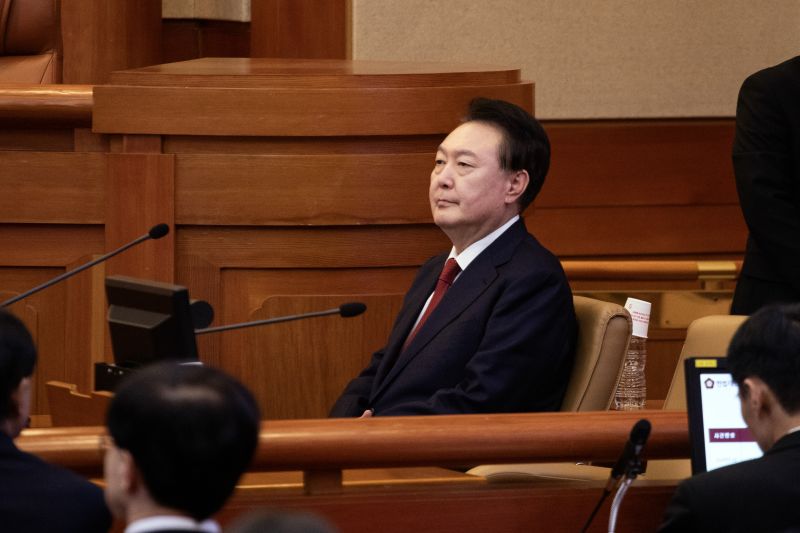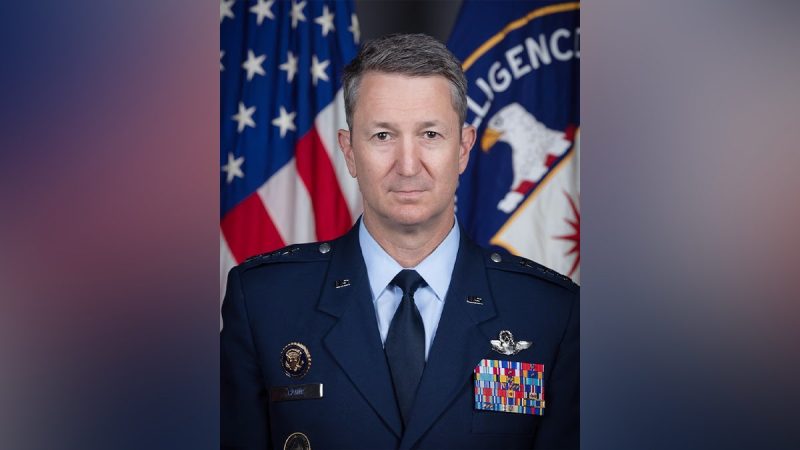
The Trump administration’s Friday evening shakeup at the Pentagon saw the firing of six senior officers as Secretary Pete Hegseth made good on promises to upend the agency’s leadership.
President Donald Trump and Hegseth fired the chairman of the Joint Chiefs of Staff, Gen. C.Q. Brown, and replaced him with a relatively unknown figure in Lt. Gen. Dan Caine.
The choice of Caine shows the president’s preference for irregular warfare and special operations: Caine was among a group of military leaders who met with the president in December 2018 at the Al Asad airbase in Iraq. Trump was there to deliver a Christmas message and hear from commanders on the ground, and there Caine told Trump they could defeat ISIS quickly with a surge of resources and a lifting of restrictions on engagement.
”We’re only hitting them from a temporary base in Syria,” Trump said Caine told him. ”But if you gave us permission, we could hit them from the back, from the side, from all over – from the base that you’re right on, right now, sir. They won’t know what the hell hit them.”
‘It was a different message than [Trump] had gotten from leadership at the Pentagon, and I think that really made an impression,’ according to Rob Greenway, a former National Security Council official who was on the trip and has known Caine since they graduated from Virginia Military Institute together.
Trump, on picking Caine Friday, lauded him as ‘an accomplished pilot, national security expert, successful entrepreneur, and a ‘warfighter’ with significant interagency and special operations experience.’
He’d plucked the retired general from relative obscurity to serve as his senior military adviser after accusing his predecessor, C.Q. Brown of pushing a ‘woke’ agenda at the Pentagon. Brown had been behind a 2022 memo laying out diversity goals for the Air Force.
Caine does not meet the position’s prerequisites, such as being a combatant commander or service chief, and will require a waiver to be confirmed to the position.
But the choice leaves Pentagon watchers curious on what direction Caine will take at his new high-level post.
‘Caine hasn’t written much, we’re sort of trying to read the tea leaves here,’ said Mark Cancian, a senior defense advisor at the Center for Strategic and International Studies.
Greenway called Caine ‘an absolutely inspired pick, a tremendous officer with a remarkable background, and he has the confidence in the president.’
Trump was undoubtedly attracted to his reputation as an aggressive fighter pilot that earned him the nickname ‘Razin’ Caine. But Caine’s nontraditional path throughout the military ranks and the business world was surely a selling point, according to Greenway.
‘It’s a priority of the president to have the Pentagon pass an audit, to have someone who knows what a balance sheet looks like, and can hopefully help the department get to the right side of it.’
The Pentagon has failed seven straight audits and the Department of Government Efficiency (DOGE) has set its sights on budget cuts at DOD.
Caine, an F-16 pilot by background, spent time as the top military liaison to the CIA, an Air National Guard officer and regional airline founder in Texas. He was a White House fellow at the Agriculture Department and a counterterrorism specialist on the White House’s Homeland Security Council.
From 2018-19, he was deputy commander of Special Operations Joint Task Force – Operation Inherent Resolve, which has been fighting the Islamic State since 2014, though little is publicly known about his role in that operation. The role of airstrikes, however, grew during that time, including clandestine ones, and Trump designated airstrike approval to commanders rather than the White House.
But critics say Caine, like Hegseth, does not have the command experience for the role as Trump’s top military advisor.
‘Trump sees [the role] as somebody who has the ability to move forces and direct funding, and it just doesn’t work that way. That’s not what the role is. So now you have a president who has people around him who are his principal advisors, [Hegseth] and this new chairman, who really have limited qualifications at the more senior levels,’ said Gene Moran, former advisor to the chairman of the Joint Chiefs and founder of lobbying firm Capitol Integration.
The administration also relieved Adm. Lisa Franchetti, chief of naval operations – who Hegseth believed had been given the job because she was a woman – Gen. Jim Slife, Air Force vice chief of staff, and the judge advocates general of the Army, Navy and Air Force.
‘If naval operations suffer, at least we can hold our heads high. Because at least we have another first! The first female member of the Joint Chiefs of Staff – hooray,’ Hegseth wrote in his 2024 book, ‘The War on Warriors.’
‘The Navy, in particular, has been unable to complete a procurement program on time and on budget and notoriously has decommissioned more ships than it’s made,’ said Greenway. ‘So I think the message there was accountability has to be restored.’
The switch-up of judge advocates general could be the biggest signal of policy change, where Hegseth has looked to grant greater authority to forces on the ground without having to worry about legal constraints.
The judge advocates general, the top uniformed attorneys of the Army, Air Force and Navy, oversee the legal advisors for each branch and the defense counsel and prosecutors for courts-martial.
Hegseth has spoken out against what he sees as an ‘obsessive’ prosecution of war crimes. ‘He wants to give the benefit of the doubt to the warfighter, if there’s not, you know, an absolute massacre,’ one source familiar with the defense secretary’s thinking said.
‘Ultimately, we want lawyers who give sound constitutional advice and don’t exist to attempt to be roadblocks to anything that happens,’ the Pentagon chief told Fox News on Sunday.
‘Hegseth has said the troops should do what they need to achieve victory and not feel constrained by the lawyers,’ said Cancian. ‘But then you could have some actions that are contrary to international law or treaties, that could make a huge controversy, both domestically and with our allies.’
But the advancement of Caine, with his covert operations background, and the removal of the top lawyers would signal a new focus on covert operations – a push that would line up with new terrorism designations for cartels in Latin America – and could set the military up for covert counter-narcotics strikes south of the border.
‘We could definitely see a change in troop postures in some of these regions we’ve been in for too long, and new missions in Mexico going after the cartels,’ another Hegseth ally said.
This post appeared first on FOX NEWS




